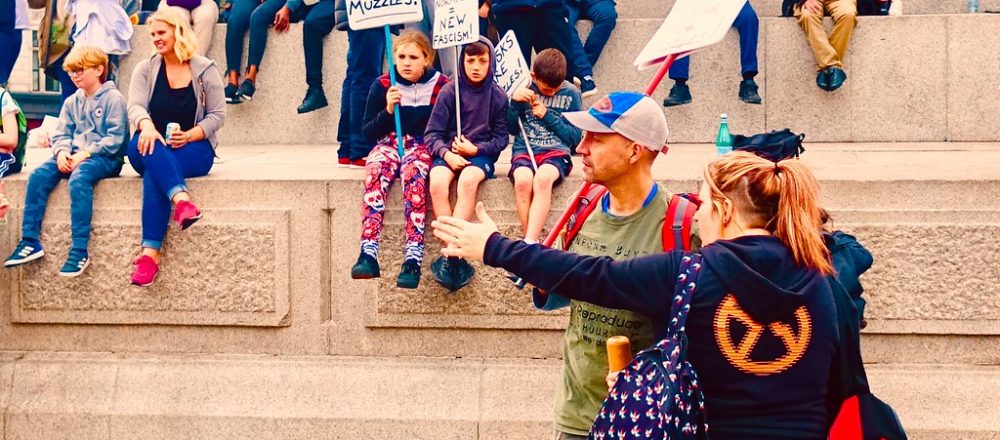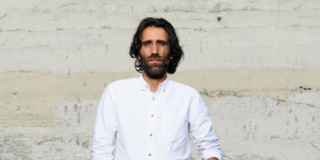Human rights – at their core – are about the preservation, dignity and respect for human beings and our lives. Yet this year public debate has treated human rights as a joke, the catchcry of out of touch anti-maskers opposed to government restrictions, instead of critical guides for making tough decisions to deal with the very real public health threats posed by the COVID-19 pandemic.
This sidelining makes it easier to subordinate human rights as less important than economic interests.
The viral video of ‘Bunnings Karen’ became the focal point for human rights discussions and Google searches. Politicians, social media commentators and journalists scoffed at misguided attempts to raise the UN Charter of Human Rights to get around mandatory mask-wearing. At the same time, human rights institutions were attacked for failing to criticise restrictive measures on civil liberties.
In deriding people for trying to talk about human rights when discussing public policy and viewing it as a fringe concern, the value and importance of human rights as a critical check on government power was lost.
The arguments raised by anti-maskers seeking to justify conspiracy theories funnelled through QAnon and increasingly curated social media bubbles were wrong. Far-right attacks which spread misinformation and fear erode public trust in government and seek to divide our community, making it harder to keep our communities safe.
The human rights of free speech, peaceful protest and freedom of movement can be limited when reasonable, necessary and proportionate to do so, to protect the rights and freedoms of others. A recent Supreme Court decision confirmed that the time-limited curfew which restricted the freedom of movement and liberty of about five million Victorians was reasonably proportionate under the Victorian Charter of Human Rights and Responsibilities, in order to meet the objective of protecting public health.
The Australian Government should uphold international treaties it has agreed to, such as the United Nations Declaration on Human Rights, and International Covenants on Civil and Political Rights and Economic, Social and Cultural Rights. Yet Australians have no way to hold the government to account without a national Charter of Rights (or equivalent instrument), which would ensure their decisions and actions are guided by values of freedom, equality and dignity, and allow people to take action to get justice if their rights are violated.
Queensland and the ACT also have human rights acts which require lawmakers, governments and public authorities to factor in human rights, but there are legal barriers to human rights commissions and courts being able to decide whether a person’s human rights have been violated.
There is no question that the catastrophic threat to human lives posed by the COVID-19 pandemic has presented uncharted challenges to decision-makers worldwide. It is for this reason that governments have a greater responsibility to take into account our human rights when making decisions which will shape our lives and futures for decades to come.
Emergency powers which circumvent fundamental democratic safeguards designed to require parliamentary oversight, evidence-based law-making, responsible expenditure of taxpayer funds and transparency, should only ever be used in the most extreme circumstances for limited periods of time.
While needed, the interventions implemented to ensure people have access to basic food and shelter needed to stay safe, were not nearly enough to prevent the exacerbation of existing inequalities during COVID-19.
People living in poverty now face record-high unemployment, from people relying on social security to people in precarious, casual and insecure work.
People of colour have been targeted during the pandemic, from increased hate-fuelled street harassment against Asian Australians to the police enforced hard lockdown of Melbourne’s public housing towers, and refugees and migrant workers excluded from JobKeeper payments.
People with disability and their carers have reported increased workplace discrimination for requesting flexible work or reasonable adjustments to lower heightened risks for many people with disability contracting COVID-19.
Women, parents and families have also been hit, with staggering spikes in family violence, redundancies targeting new mothers on parental leave, the burden of homeschooling and childcare shutdowns disproportionately affecting mothers, the list goes on.
Government decisions will determine whether we are all in this together, or whether hundreds of thousands of human beings will be forced into poverty, homelessness and sickness in years to come.
For most Australians, tax cuts for high-income earners and write-offs for big business will do little. In contrast, continuing childcare subsidies, raising social security payments and penalty rates for people in unreliable and insecure work will prevent hardship and poverty exacerbated by the COVID-19 crisis.
As long as ‘the economy’ and corporate interests are seen as more important than human rights and human lives, thousands of Australians will suffer in the crucial years to come.
These are vital decisions. Human rights must be central to guiding how elected representatives weigh up competing interests to make decisions that are good for society, people and our planet.
If COVID-19 has taught us anything, it is that we all exist and live in relationship with one another. Having experienced lockdown, we understand why we need human rights and freedoms to thrive and live full lives with others. Losing the freedom to go outside or spend time with our loved ones can build compassion for people in far worse situations, such as people locked in immigration detention or mental health units for years at a time.
COVID-19 presents a turning point for people who care about human rights. Our voices need to be heard loud and clear by the politicians we elected about the kind of society we want to build in the aftermath of this crisis.
We cannot fall into the trap of devaluing human rights by debating our inherent human dignity and worth as a cost-benefit exercise, because we know that human life can never be reduced to dollars and cents. Now is the time to call for secure work at a living wage, a universal basic income, stronger laws to promote equality and compassionate responses for people deprived of their liberty.
Human rights are a tool to help people understand that we are all entitled to the same basic rights and freedoms. They give us the means to challenge arguments which privilege corporate interests over human dignity, or choices which benefit the powerful over the powerless.
We have the power to demand that governments put people before profit to create post-COVID communities across Australia that are fair and equal.





